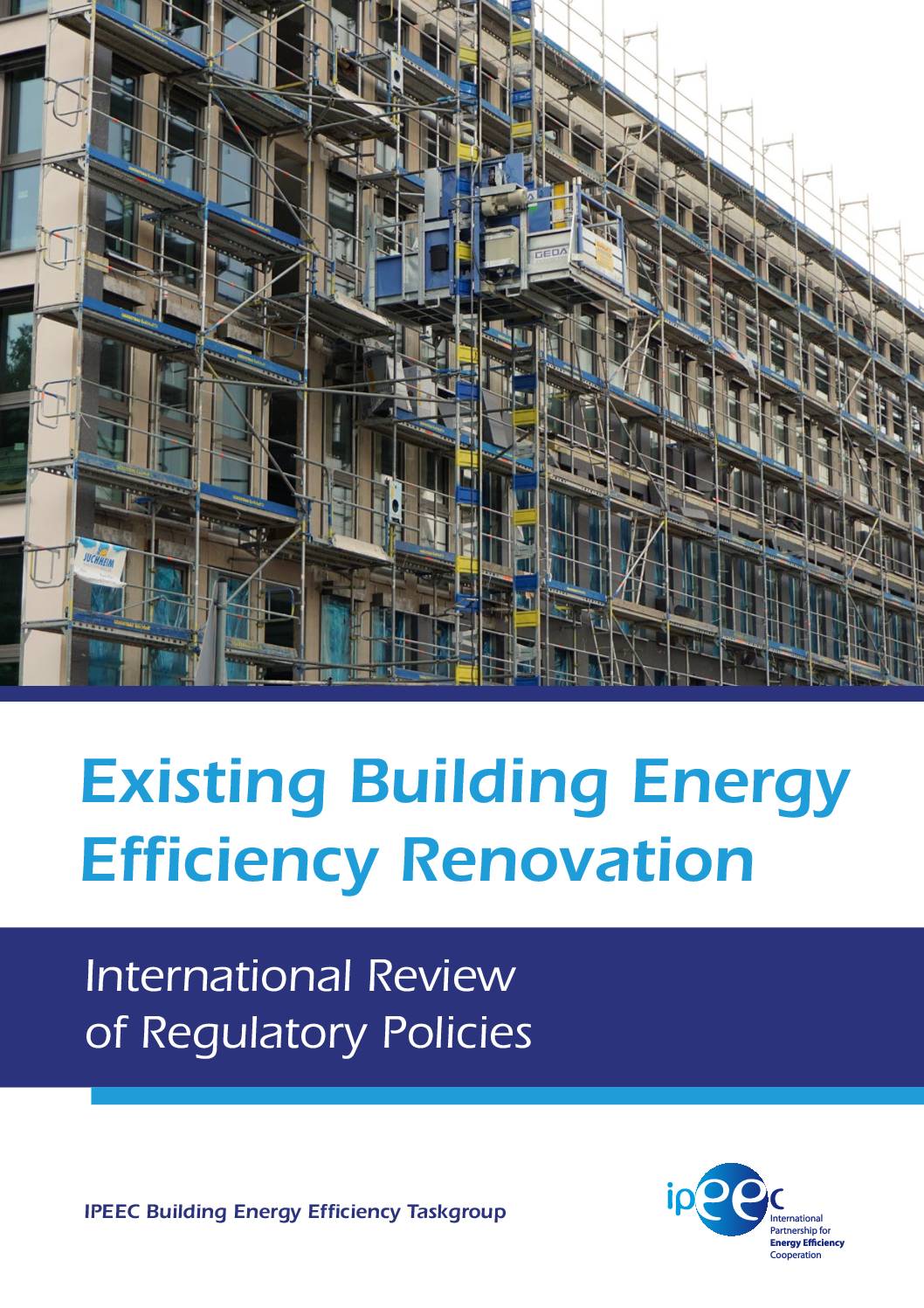Thie report aim to provide an overview of key regulatory policies which have been used internationally to require improvements to existing commercial and residential buildings at the point of renovation, refurbishment, retrofit, alterations, or additions. Buildings consumed over 30% of global final energy consumption in 2014, and 55% of final electricity demand. Building energy consumption globally has been steadily growing, with building-related CO2 emissions rising by nearly 1% per year since 2010. Consumption is forecast to continue to grow through 2060 without substantial new policy implementation. Despite this trend, over the last decade several leading countries have managed to decouple their average energy consumption from economic growth and to reduce the economy wide energy consumed by buildings. An earlier IPEEC BEET report on Building Energy Performance Metrics showed that from 2000 to 2012, the United Kingdom (UK), Germany, Canada, Japan and France all had cut their total building energy use over that period, despite economic growth.
Link to resource Download sourceShare this

Sector: Buildings
Country / Region: Asia, Canada, Europe, France, Germany, Japan, Northern America, United Kingdom
Tags: building types, carbon dioxide, corporate reporting, economic growth, electricity, electricity generation, emissions, energy, energy efficiency, final energy, implementation, residential buildings, retrofitsKnowledge Object: Publication / Report
Published by: OECD/IPEEC
Publishing year: 2017
Author: OECD/IPEEC
